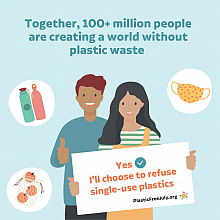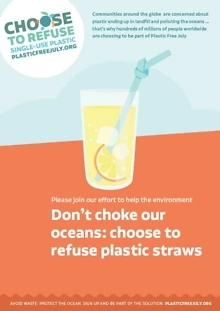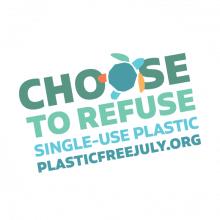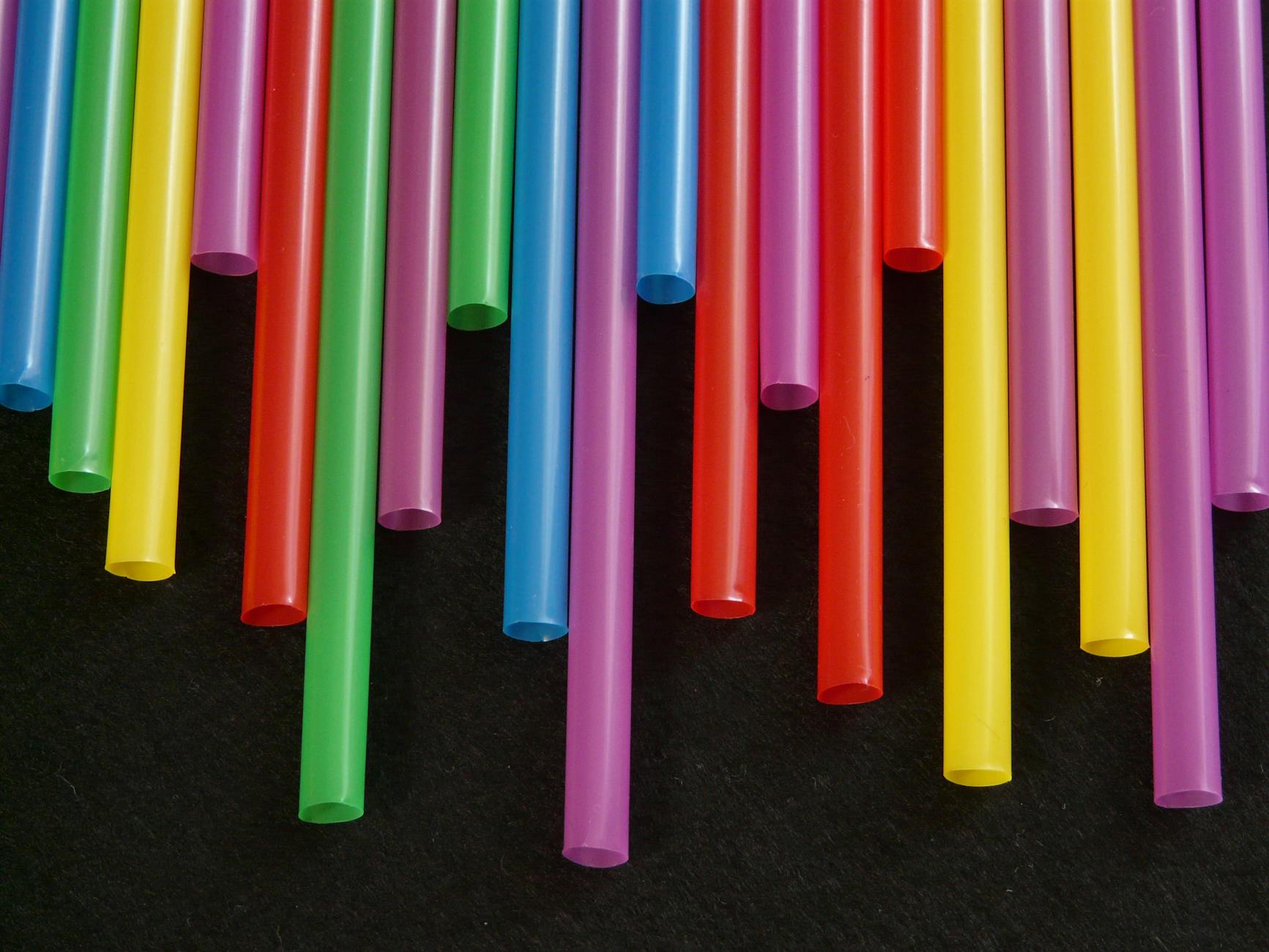June is when many people start preparing for Plastic Free July®. Whether you’re getting together a reusable kit or looking for places to buy unpackaged produce or bulk foods, now’s the time to get ready to choose to refuse single-use plastic.
Small steps now will add up to make big changes during July! Join 100+ million participants worldwide by being counted and taking the challenge.

Plastic Free July® is a global movement that helps millions of people be part of the solution to plastic pollution. Will you be part of Plastic Free July by choosing to refuse single-use plastics? Take the challenge!
Lots of inspiration to get involved in Plastic Free July:
1. change your cleaning habbits
2. think about a bamboo toothbrush
3. use soap bars
4. try refillable laundry solutions
5. choose natural fabrics
6. turn to paper party bags and straws
7. buy pasta and pulses loose and use your own jars
8. avoid plastic packaging
9. buy less overall
10. shop second hand
250 billon plastic bottles are NOT recycled
The number of plastic bottles in the sea is unknown, but around 8-9 million metric tons of plastic end up in our oceans every year. That’s the equivalent of a garbage truck emptying plastic into the ocean every single minute.

What we do know is around 60 million plastic bottles end up in landfills every single day. Americans alone send more than 38 billion water bottles to landfills every year, the equivalent of 912 million gallons of oil.
40% of the plastic produced every year is single-use plastic
Plastic pollution is found on every beach in the world. Only 14% of plastic is recycled and there are five “garbage islands” in the world’s oceans.
There are over 150 million tonnes of plastic in the ocean(s) and about 49% of the waste found at sea is disposable plastics.
Unlike other materials, plastic does not biodegrade. Shockingly it takes 1,000 years to break down, so when it is discarded, it builds up in the environment until it reaches a crisis point. This pollution chokes marine wildlife, damages soil and poisons groundwater, and can cause serious health impacts.

Say NO to plastic!
“Whilst sailing through remote islands on the edge of the Indian ocean, I saw the most perfect white sand beaches had plastic amongst the palm leaves. Not left there by humans. But washed up by the storms which push rubbish round and round the bottom of the planet; circling until it finds it’s ideal destination to degrade over decades. It’s a disturbing picture I will never forget and is the inspiration for me to be mindful about how much plastic I consume.” Jo Spolton, CEO and Founder of Rumage.
